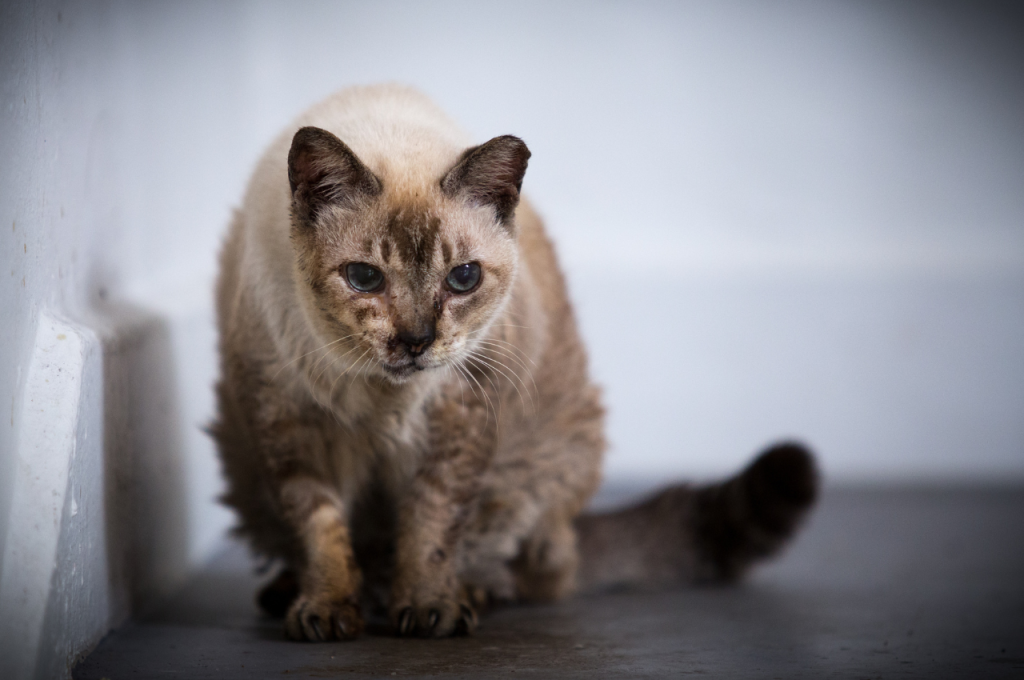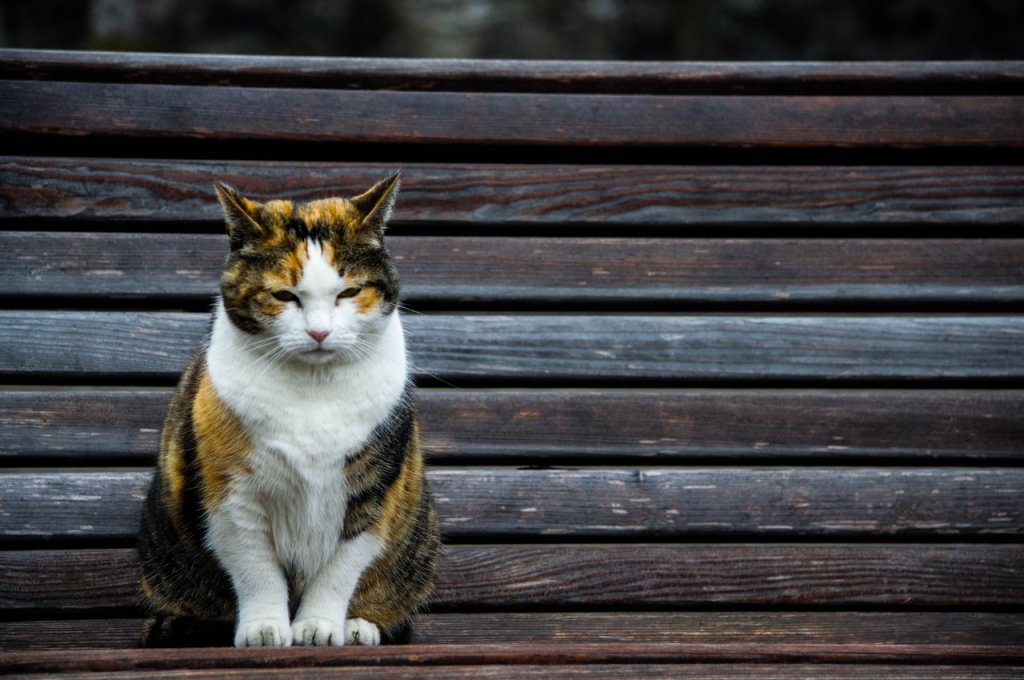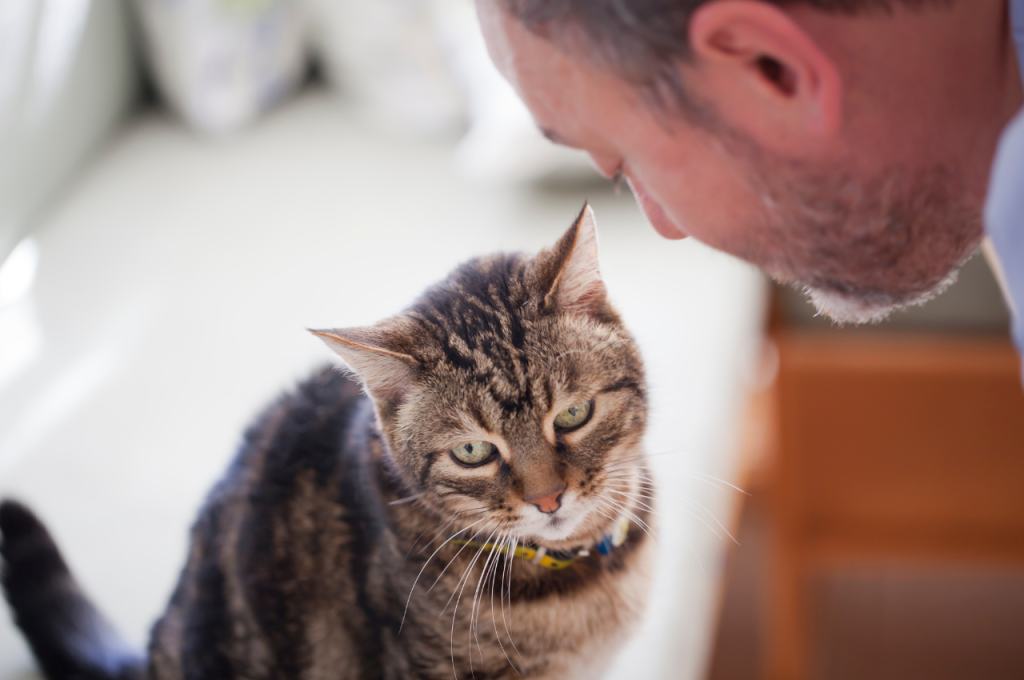Older cats often experience a variety of health problems. These may include dental issues, arthritis, and kidney disease, among others.
As cats age, their immune systems weaken, making them more susceptible to these types of conditions. It’s important to keep a close eye on your cat’s health and behavior as they get older and to take them to the vet for regular check-ups. With proper care and attention, however, older cats can still lead happy and healthy lives.
Introduction to Senior Feline Care
Discover essential insights on senior feline care, focusing on common older cat health problems. Learn how to address age-related issues proactively for your beloved senior cat’s well-being. Gain valuable tips on maintaining your aging feline friend’s health and happiness.

Transitioning Into The Golden Years
Cats are considered seniors around the age of 7, and just like humans, they require special care as they age. The transition into the golden years for felines often brings about health changes and challenges that require attention and proactive management. Understanding these changes and being proactive in addressing them is essential to ensuring the well-being of your senior cat.
Importance Of Proactive Health Monitoring
Proactive health monitoring is crucial for senior cats to detect and address potential health issues early on. Regular veterinary check-ups, proper nutrition, and environmental modifications are important aspects of proactive care for older felines. By staying vigilant and addressing health concerns promptly, you can help ensure a higher quality of life for your aging feline companion.
Common Health Issues In Aging Cats
As our feline friends grow older, they become more susceptible to certain health problems. It’s important for cat owners to be aware of these issues and take proactive steps to ensure their senior cats receive the necessary care and attention. In this article, we will discuss three common health issues that aging cats may face: chronic kidney disease, dental disease, and oral health.
Chronic Kidney Disease
Chronic kidney disease is one of the most prevalent health problems in older cats. It occurs when the kidneys gradually lose their ability to function properly over time. This condition can be caused by a variety of factors, including genetics, infections, and certain medications. Some common symptoms of chronic kidney disease in cats include increased thirst, frequent urination, weight loss, and decreased appetite.
As a responsible cat owner, it is crucial to monitor your senior cat’s water intake and litter box habits. If you notice any changes, it’s essential to consult your veterinarian for a proper diagnosis. Treatment options for chronic kidney disease in cats may include a special diet, medications, and regular veterinary check-ups.
Dental Disease And Oral Health
Just like humans, cats can also suffer from dental disease as they age. Poor oral health can lead to a range of problems, including gum disease, tooth decay, and tooth loss. It’s important to pay attention to your cat’s oral hygiene and take preventive measures to avoid dental issues.
Regular brushing of your cat’s teeth can help remove plaque and tartar buildup, reducing the risk of dental disease. Additionally, providing your senior cat with dental treats or toys designed to promote oral health can be beneficial. If you notice any signs of dental problems such as bad breath, drooling, or difficulty eating, it’s essential to seek veterinary care.
Dental Disease And Oral Health
It’s important to note that if your cat has an existing dental disease, a professional dental cleaning under anesthesia may be necessary. Your veterinarian can assess the condition of your cat’s teeth and recommend the appropriate treatment.
In conclusion, as cats age, they may experience various health issues, including chronic kidney disease and dental problems. By staying proactive and providing proper care, you can help ensure a healthier and happier life for your aging feline companion.
Behavioral Changes And Cognitive Decline
As cats age, they may experience behavioral changes and cognitive decline that can affect their quality of life. Identifying signs of feline cognitive dysfunction and managing behavioral changes are crucial aspects of caring for an older cat’s health.
Identifying Signs Of Feline Cognitive Dysfunction
Feline Cognitive Dysfunction (FCD), also known as cognitive decline, is a common condition in older cats. Signs of FCD may include disorientation, changes in sleep patterns, increased anxiety, reduced interest in grooming, and litter box issues. Vocalization and wandering are also common signs.
Managing Behavioral Changes
Behavioral changes in older cats can be challenging, but there are strategies to help manage them. Creating a predictable routine, providing mental stimulation, and maintaining a comfortable environment can help alleviate some of the symptoms associated with cognitive decline.
Mobility Challenges And Arthritis
As cats age, they may experience mobility challenges and arthritis, impacting their quality of life. Recognizing joint pain and stiffness, as well as finding ways to improve their mobility with aids, is crucial for ensuring their well-being.
Recognizing Joint Pain And Stiffness
Older cats can exhibit signs of joint pain and stiffness such as difficulty jumping, reluctance to engage in physical activities, and limping. They may also lick or bite at their joints in an attempt to alleviate discomfort. If you notice these signs, it’s essential to consult a veterinarian to determine the best course of action.
Improving Quality Of Life With Mobility Aids
Mobility aids such as ramps, steps, and specialized litter boxes can help older cats navigate their environment more comfortably. Providing soft bedding and elevated resting spots can also reduce the impact of arthritis on their daily life. Additionally, joint supplements and prescribed medications can alleviate pain and improve mobility.
Nutritional Needs For The Aging Cat
As cats age, their nutritional needs change, requiring adjustments to their diet to ensure optimal health and well-being.

Adjusting Diet For Optimal Health
- Older cats benefit from diets rich in high-quality proteins to maintain muscle mass and support overall health.
- Reduced calorie content may be necessary to prevent obesity as cats become less active with age.
Increased fiber can aid in digestive health, while adequate hydration is crucial for kidney function.
Supplements To Support Senior Cats
- Omega-3 fatty acids help support joint health and reduce inflammation.
- Probiotics can promote digestive balance and improve nutrient absorption.
- Joint supplements like glucosamine and chondroitin aid in mobility and reduce stiffness.
Consult your vet before adding supplements to your cat’s diet to ensure they are safe and appropriate.
Vision And Hearing Loss
Older cats may experience vision and hearing loss, impacting their overall health and quality of life. Regular check-ups and attentive care can help manage these issues and ensure your feline companion’s well-being. Early detection and appropriate interventions are crucial for addressing these common age-related health problems in older cats.
Vision and Hearing Loss are among the most common health problems that older cats can face. As cats age, they may experience a decline in their sensory abilities, which can affect their overall quality of life. Cats rely heavily on their vision and hearing to navigate their environment, hunt prey, and interact with their owners. Therefore, it is important for cat owners to understand how to adapt to their pet’s sensory changes and provide a safe living environment. In this article, we will discuss how to help your cat adapt to sensory changes and the safety measures that can be taken to prevent accidents at home.
Adapting To Sensory Changes
As cats age, their vision and hearing may decline gradually. It is important to observe your cat’s behavior and look for signs of sensory changes. If you notice any unusual behavior, such as bumping into furniture or not responding to sounds, it may indicate that your cat is experiencing vision or hearing loss. To help your cat adapt to these changes, you can:
- Make sure your cat’s living environment is consistent and familiar.
- Use scents to help your cat navigate their surroundings. For example, you can use essential oils or scented candles to mark certain areas of the house.
- Place your cat’s food and water in the same location to help them find it easily.
- Use toys with bells or other noise-making features to help your cat locate them.
Safety Measures At Home
Cats with sensory impairment are more susceptible to accidents and injuries at home. As a cat owner, it is important to take the necessary safety measures to prevent accidents. Here are some safety measures you can take:
- Keep your cat’s living environment free of clutter and obstacles.
- Provide your cat with a soft bed or cushion to rest on.
- Use baby gates or barriers to restrict access to areas that may pose a risk, such as stairs or balconies.
- Use night lights or motion-sensor lights to help your cat see in the dark.
- Make sure your cat’s litter box is easily accessible and in the same location.
In conclusion, vision and hearing loss are common health problems that older cats may face. As a cat owner, it is important to understand how to adapt to your cat’s sensory changes and provide a safe living environment. By taking the necessary safety measures, you can help your cat live a happy and healthy life.
Preventive Health Measures
Help your older cat stay healthy by implementing preventive health measures. Regular veterinary check-ups, proper nutrition, and dental care can help prevent common health problems. Stay proactive to ensure your furry friend enjoys a happy and healthy life.
Regular Veterinary Check-ups
Regular check-ups help detect issues early. They include dental, eye, and blood tests.
Vaccination And Parasite Control
Vaccinations protect against common diseases. Parasite control prevents fleas, ticks, and worms.
End of Life Care and Considerations
As an older cat experiences health problems, end-of-life care and considerations become important. Providing compassionate and tailored support, such as pain management and quality of life assessments, can help ensure the well-being of your aging feline companion.
Comfort Measures For Hospice Care
- Provide soft bedding and warmth for comfort.
- Ensure easy access to food, water, and litter.
- Offer gentle petting and quiet, soothing environment.
Making Difficult Decisions
- Discuss quality of life with vet for guidance.
- Consider pet’s pain levels and overall well-being.
- Consult with family to make informed decisions.
Support For Cat Owners
Cat owners can find support in managing health problems that commonly affect older cats. From arthritis to dental issues, understanding and addressing these conditions can improve the quality of life for aging felines. Regular veterinary check-ups and a balanced diet are essential for maintaining their well-being.

Taking care of an older cat can be challenging, and it can be especially difficult if your cat is experiencing health problems. As a cat owner, it’s important to know that you’re not alone. There are resources available to help you deal with the emotional stress that comes with caring for a sick or aging cat.
Dealing With Emotional Stress
Caring for a sick or aging cat can take a toll on your emotional well-being. It’s important to take care of yourself so that you can provide the best care possible for your cat. Here are some tips for dealing with emotional stress:
- Take breaks when you need them
- Reach out to friends and family for support
- Practice self-care, such as meditation or yoga
- Consider talking to a therapist or counselor
Resources And Support Groups
There are many resources available to cat owners who are dealing with health problems in their pets. Here are some places to turn for help:
| Resource | Description |
| The Cat Health Guide | An online resource that provides information about common health problems in cats |
| The Senior Cat Care Community | A forum where cat owners can connect and share advice about caring for senior cats |
| The American Association of Feline Practitioners | An organization that provides resources and support for cat owners and veterinarians |
Remember, as a cat owner, it’s important to take care of yourself as well as your pet. Don’t be afraid to reach out for help when you need it.
Conclusion
In caring for an older cat, staying attentive to potential health issues is crucial. Regular vet check-ups, a balanced diet, and a comfortable environment can help address common age-related ailments. By being proactive and observant, you can ensure your senior feline companion enjoys a happy and healthy life.
